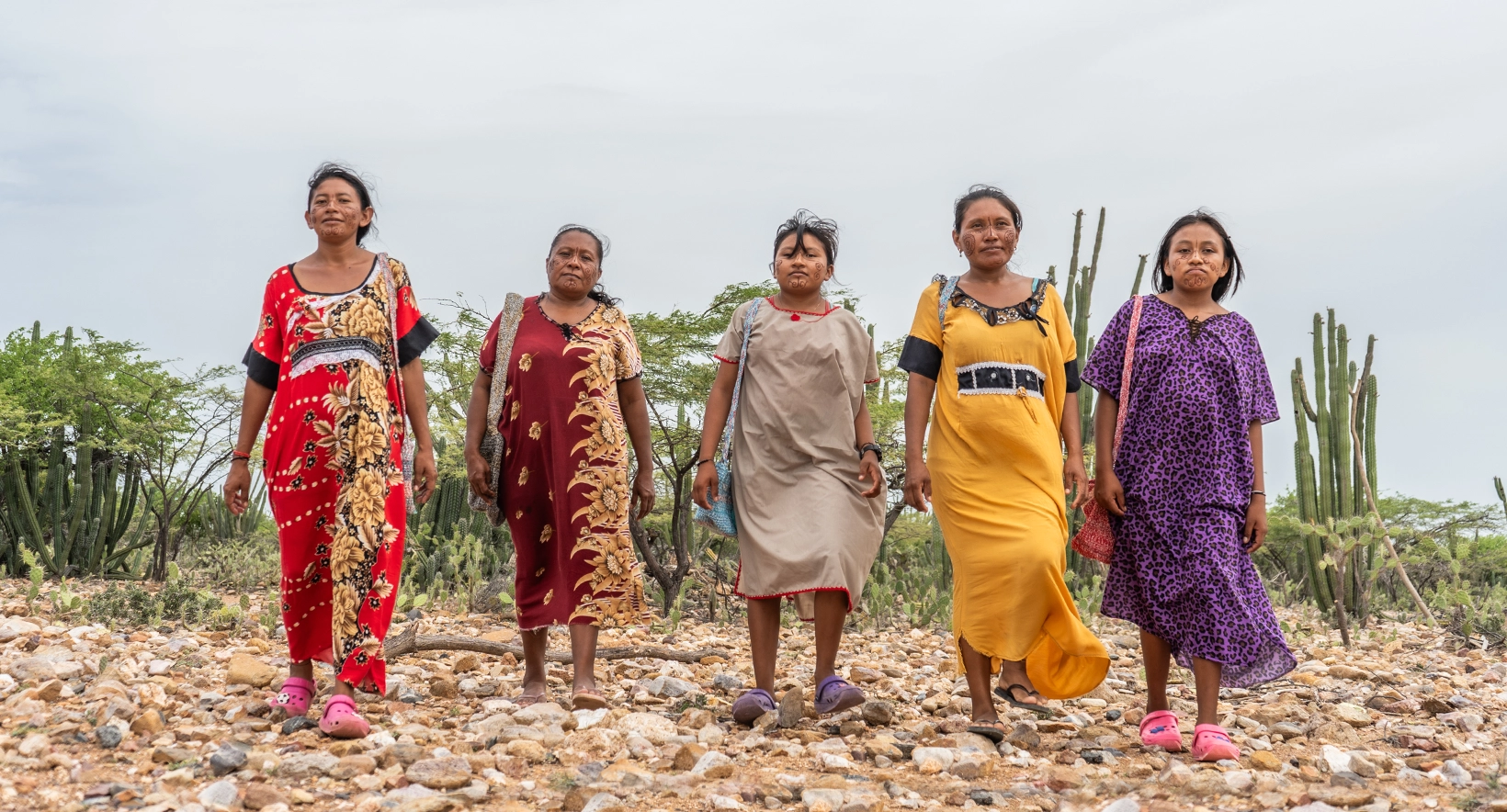
In 2018, Ana Puchaina, an elder of the Wayuu territory of Shuluwou in the Alta y Media Guajira indigenous reservation in Colombia, was concerned because the indigenous Wayuu people’s ancestral technique of processing thread (‘outajushi’) and weaving (‘katto’ui’) was disappearing. Although the Wayuu people were and are well-known in Colombia for their weaving kills and the geometric figures in their ‘kanas,’ the development of crochet and easy supply of synthetic fibers have pushed aside the traditional techniques for making the handbags used by Indigenous Wayuu Women.
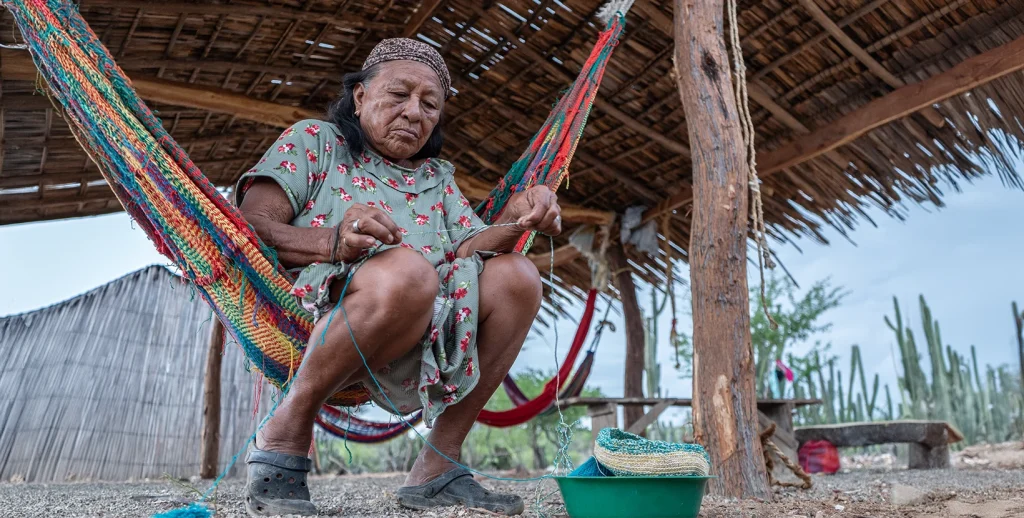

Ana Puchaina discussed her worries with six young people in the community, who began interviewing older women in various parts of the territory to recover the knowledge. In that process they learned that the thread for the bags was made using bark and their fibers, which they took from remnants of threats using the ‘outajushi’ technique; that typical Wayuu bags were made using the ‘katto’ui’ technique to spin thread; and that for Indigenous Women, weaving offered a space in which to talk, share, and be heard.
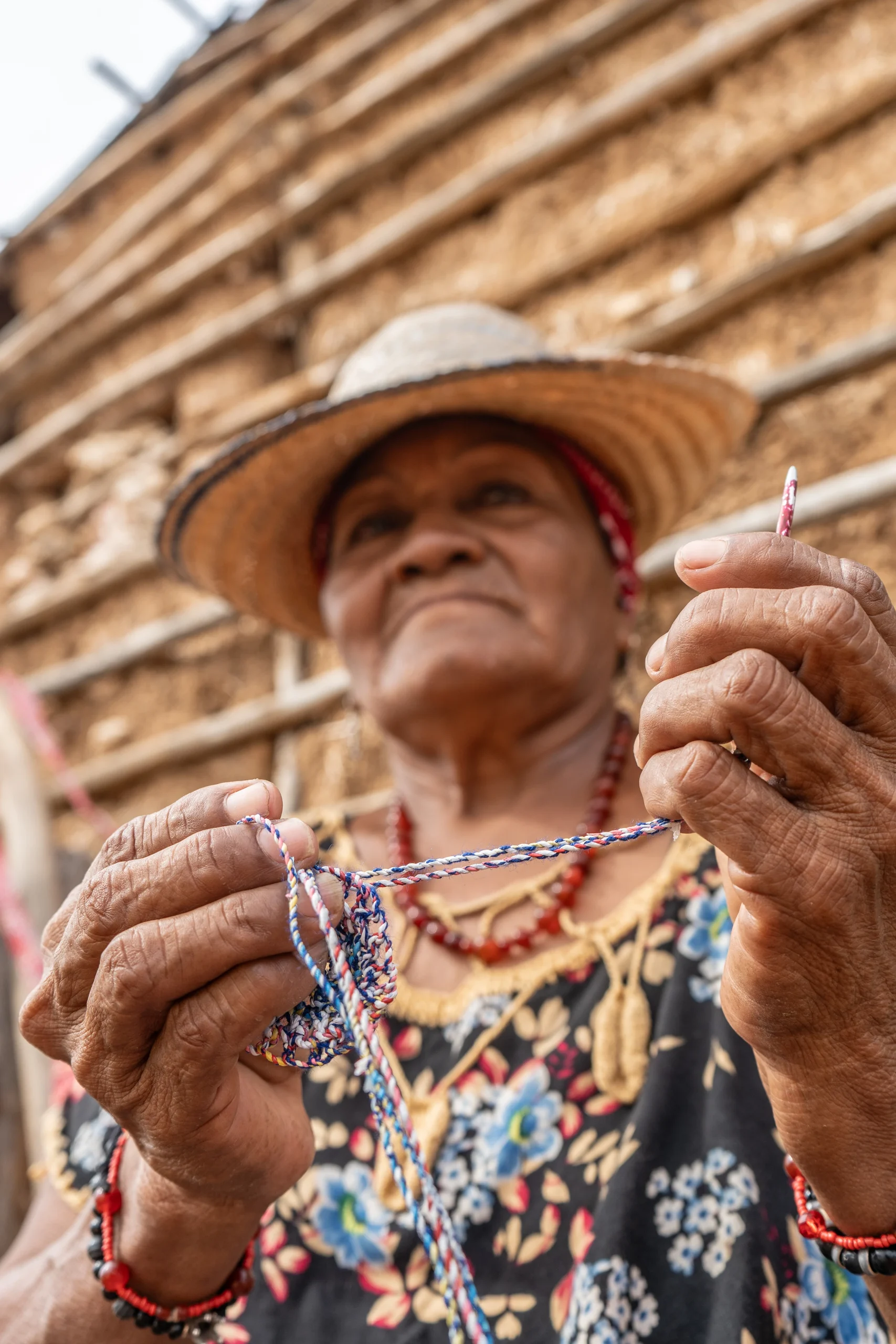
The typical bags of the Wayuu were made with the katto'ui technique for spinning, and for Indigenous Women, weaving was an opportunity to talk, share, and be heard.
The six young people who began the research – Olimpia, Rusvel, Jenny, and Quendy Palmar, along with Mermiz Fernández and Sara Puchaina, Ana Puchaina’s daughter – took the project one step beyond simply recovering knowledge. Alarmed by the huge number of plastic bags in Uribia, the municipal capital, they focused on making Indigenous Women’s typical katto’ui bags out of the plastic bags that were inundating their territory..
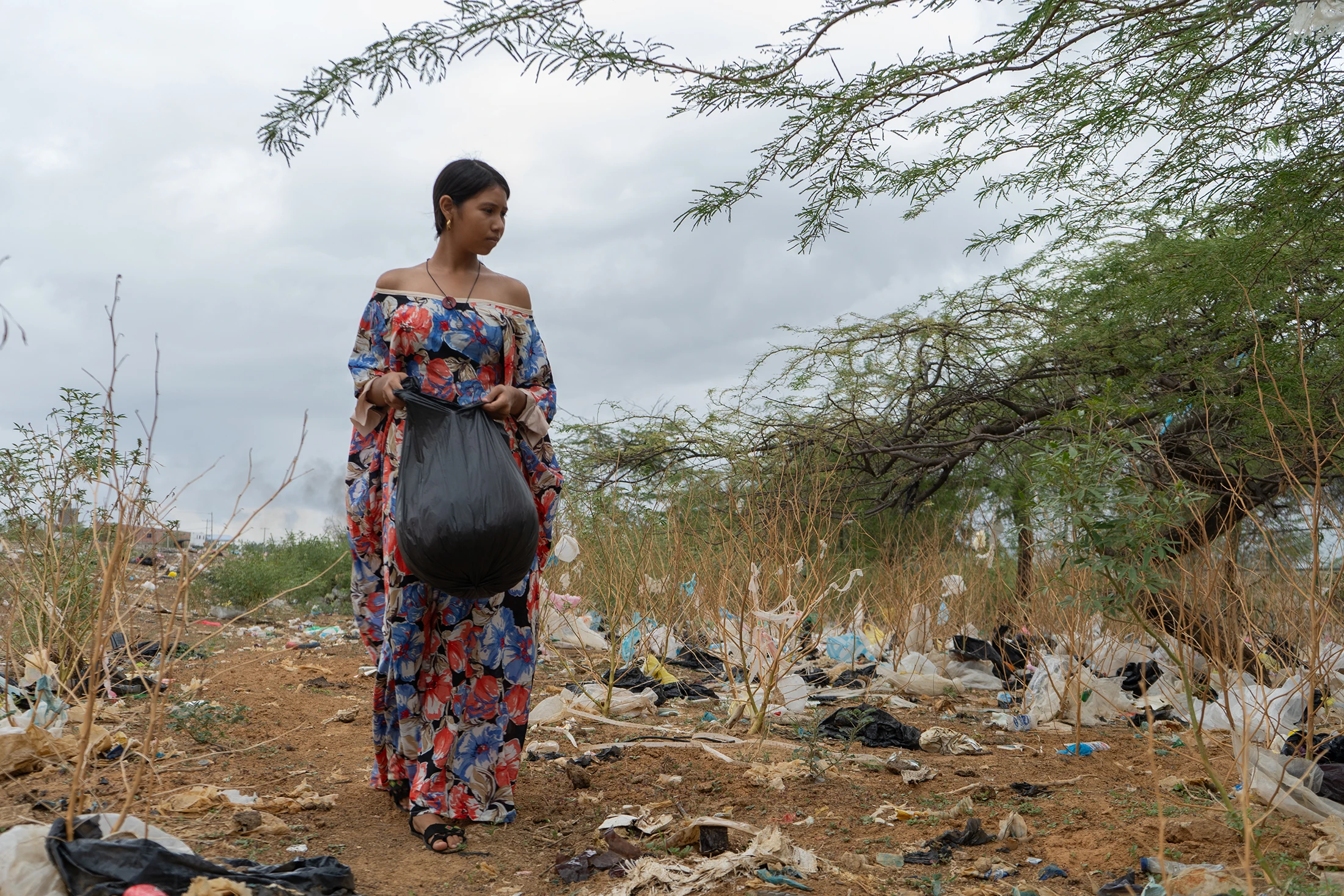

Soon they realized that the bags exposed to the sun could not be used to make the katto’ui and that the system of having volunteers collect bags was inefficient. Thus, they decided to go house to house to directly ask families not to throw away their plastic bags but rather, to wash and donate them to the group.
They launched a successful campaign on social media, and in short order more than 40 families agreed to participate, leading to the collection of some 2,000 or 2,500 bags monthly. “This worked better for us and we were more consistent: instead of gathering plastic bags from folks whose awareness was not raised, we created allies who became desirous of caring for the environment and becoming involved in the project,” explains Olimpia Palmar, spokesperson and enterprise communicator.

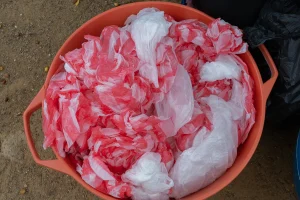
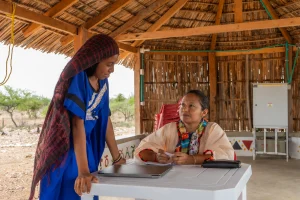
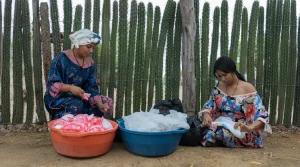
Once the material had been collected, the six young people went to the community of Shuluwou and gave it to the women weavers. They began with women ages 40-60, with whom they sketched out the katto’ui technique and bag design, which they converted into everyday eco backpacks. By combining the plastic bags with fiber threads, they were able to make stronger backpacks with a life of seven or eight years. Lastly, they created three sizes to diversify the product – small, medium, and large – requiring between 40 and 50, and 100 plastic bags.
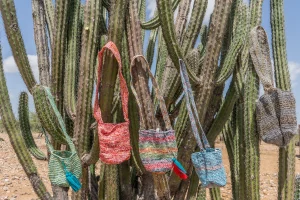
By partnering with a foundation, they were able to equip a community with a solar panel array for the women to charge their mobile phones and additionally gave them a television, a freezer, and two sewing machines. In this manner, they created a space wherein the community, traditionally spread out throughout the territory, could meet. The families would come by motorcycle, bicycle, mule, or even on foot to learn how to weave. The lives of the women involved soon began to change: finally, they could cover their basic needs, such as drinking cold bottled water or purchasing school supplies for their children.
The success of the project spread by word of mouth, and soon other communities in the territory asked to participate. The six young people took the enterprise to the community of Waimpiralein, where they brought people together of all ages and genders, including men and children. The families were recognized as production units, wherein all members participated and learned forgotten traditions. Thus they combat the destruction of the Wayuu people’s memory, migration to the cities, and the arrival of foreigners, especially from the border with Venezuela..

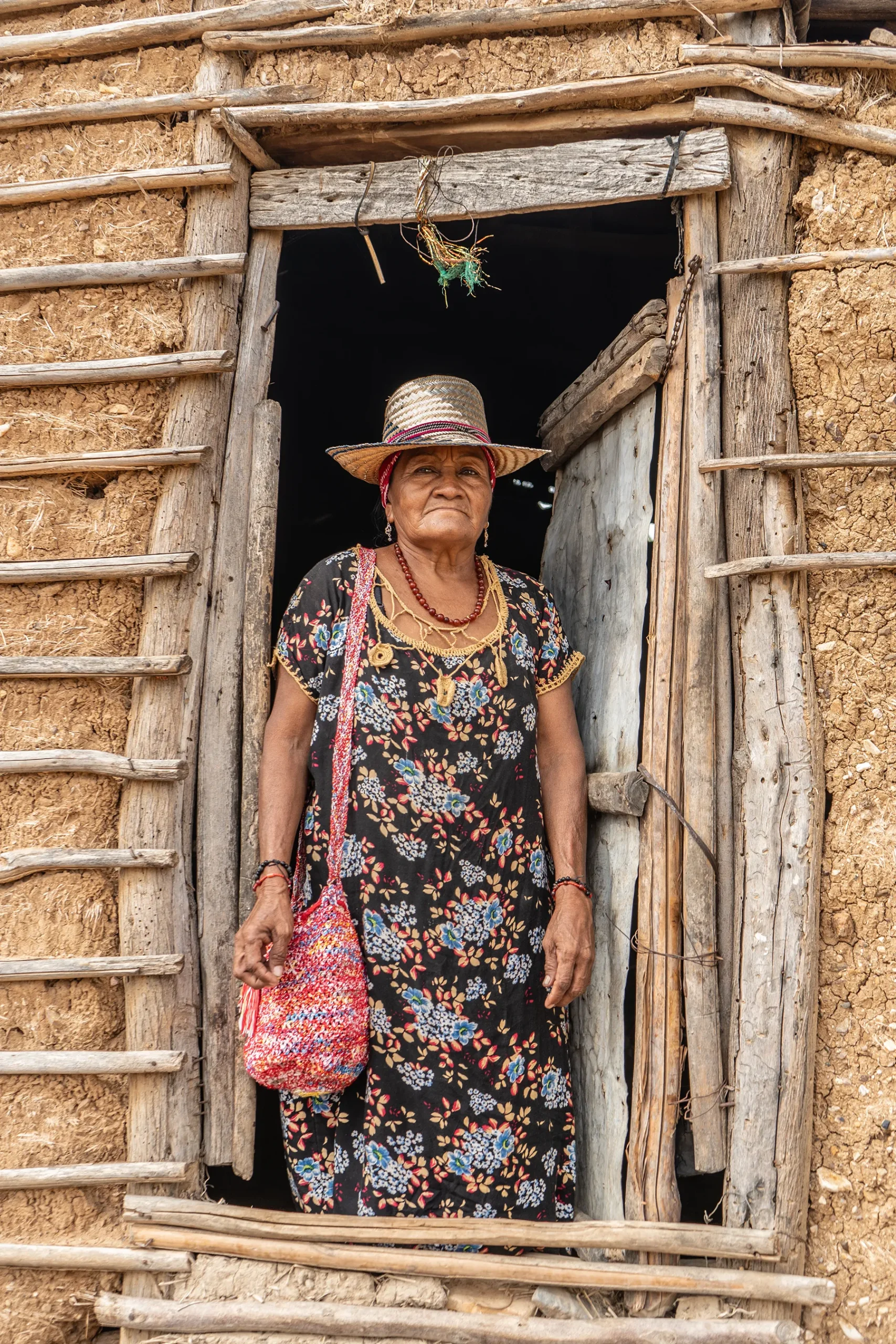
A versatile product
Once enterprises were established in the communities, the six young people took charge of publicizing the eco-backpacks and expanding the sales market. They established their base in Uribia, where they began selling via Instagram (kattoui2021) and WhatsApp to various parts of the territory. They also take advantage of university conferences, women’s events, and even music festivals as sales platforms. Though sales vary from month to month, they increase significantly on important dates such as Christmas, Mother’s Day, or Indigenous Women’s Day.
For Olimpia, the key to success has been to create a versatile product that converts a shopping bag into a backpack that can be used every day. With the collaboration of designers and experts, they developed a palette of colors and created new designs and products, such as table games and coasters. “It has been difficult to position ourselves in the market because we don’t make kanas, which are the typical Wayuu designs; nonetheless, we have revived our technique for processing raw materials,” explains Olimpia, who feels proud that now other workshops have incorporated the katto’ui technique. One fashion designer is even interested in including the thread they make in his clothing designs.
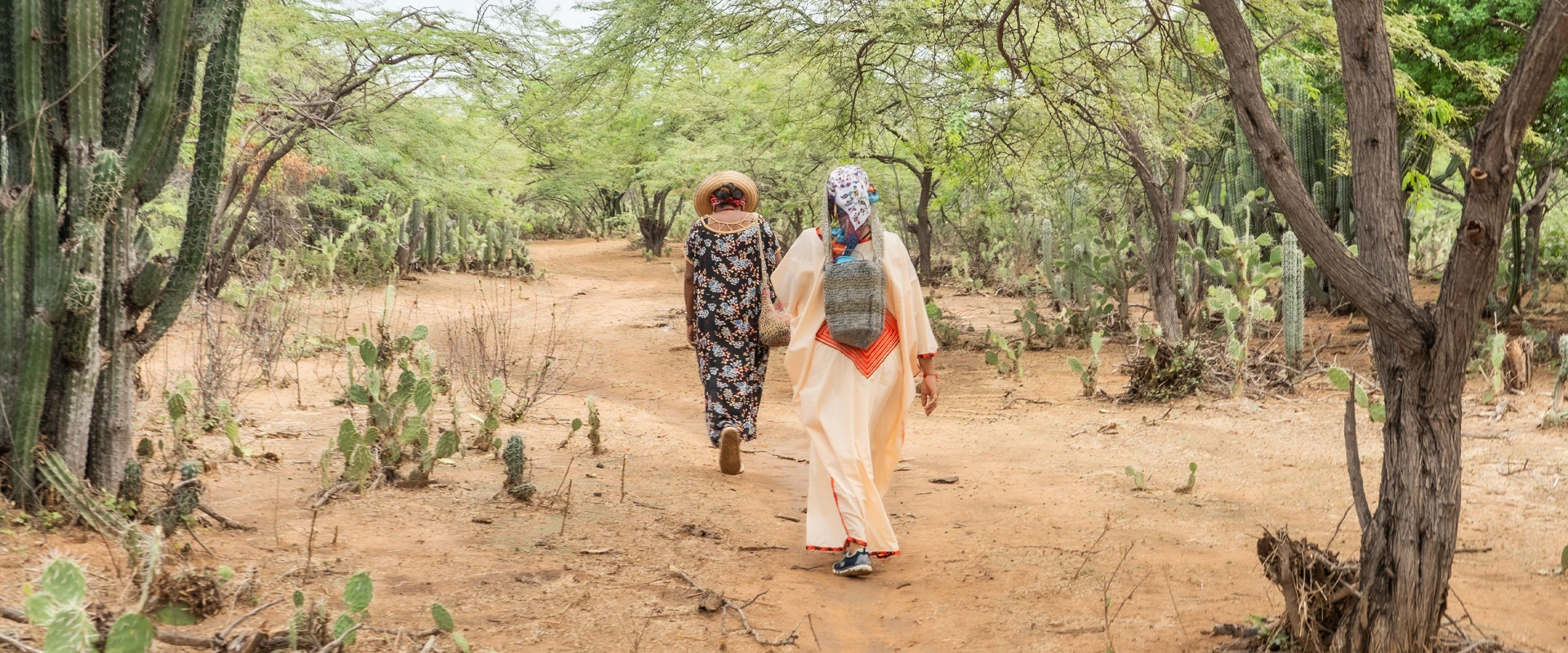
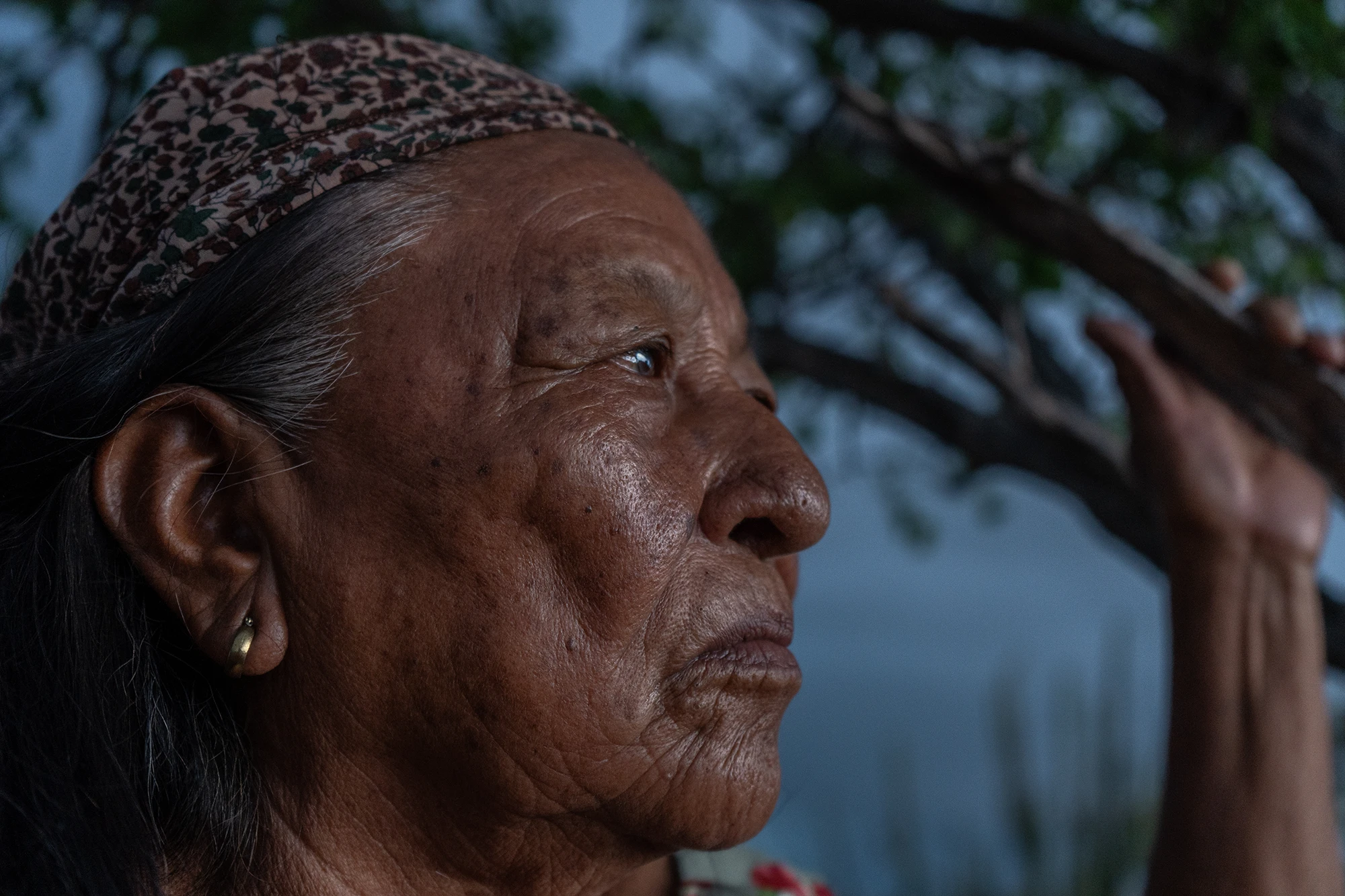
Through katto’ui, Wayuu women wove hope into the territory. Women and men achieved lifelong dreams, such as contributing a sack of corn to the household when one is a dependent person, paying the lodging costs for one’s daughter who is studying at university, or paying the cost of registering one’s children.
Sharing daily challenges
Beyond this, the real transformation has come from creating a safe listening space wherein the Wayuu women can share their problems as they weave, which they had never dared do aloud before. “The exercise of listening is what strengthens the processes and transforms us,” asserts Olimpia. In this way they wove a network for confronting their daily challenges, from how to stock up on water to obtaining a birth certificate, to vaccinating one’s children, self-care, creating female leaders, and harmonizing with the territory. “We didn’t resolve all of our problems, but by sharing them we learned how to manage them and realized we weren’t alone. Spiritual beings were guiding us,” the leader affirmed.
"We didn’t resolve all of our problems, but by sharing them we learned how to manage them and realized we weren’t alone. Spiritual beings were guiding us."
The leader affirmed.
Through katto’ui, Wayuu women wove hope into the territory. Women and men achieved lifelong dreams, such as contributing a sack of corn to the household when one is a dependent person, paying the lodging costs for one’s daughter who is studying at university, or paying the cost of registering one’s children. “Mr. Santos, who is 70 years old, was able to buy coffee for the first time in his life,” adds Olimpia. All of these achievements are presented in the Book of Hope, a booklet of accounts wherein are recorded sales, which artisan sold each eco-backpack, and to whom it was sold. The book, however, as declared by its title, goes much beyond that: it speaks of hope in a territory in which this word had withered due to a lack of water, employment, and opportunities
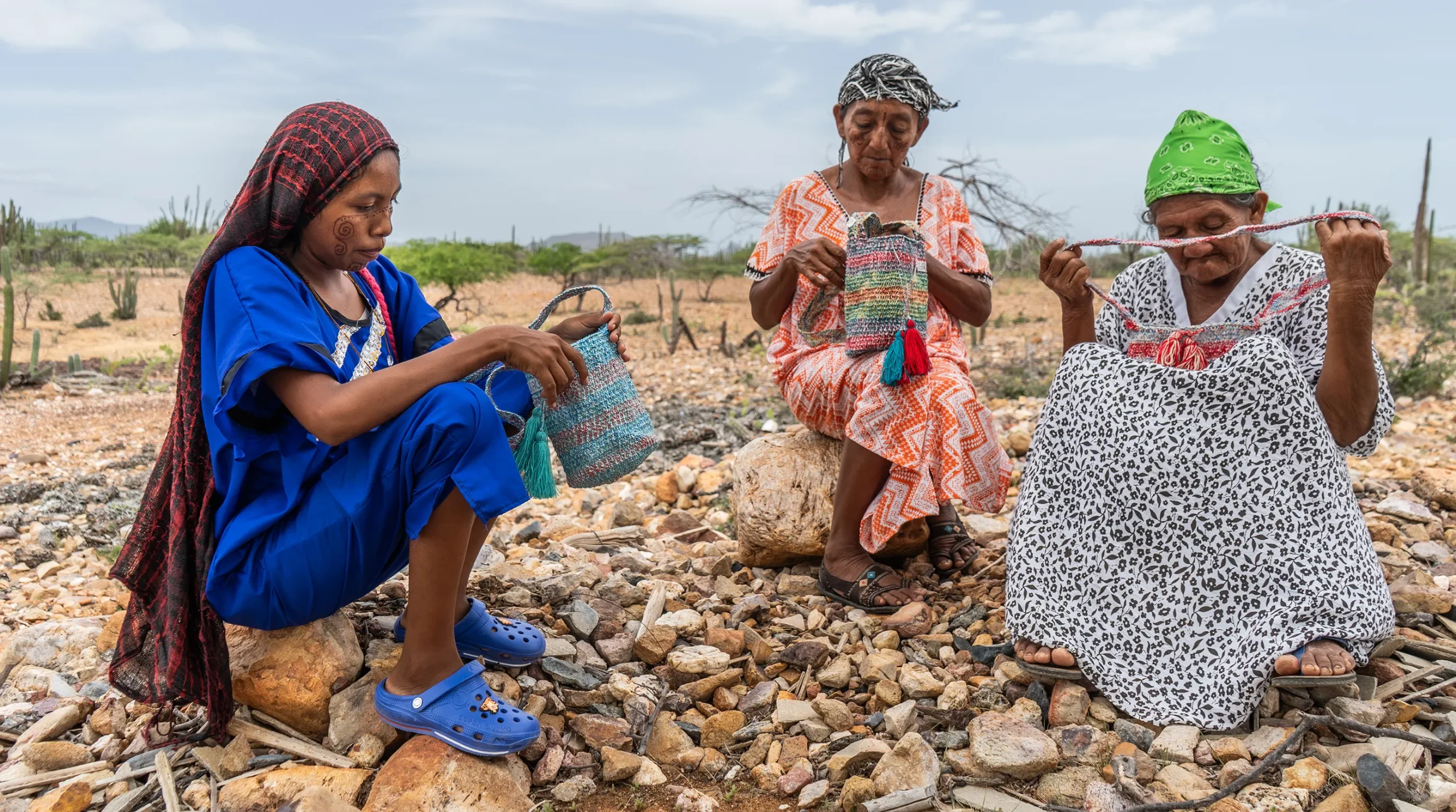
Water management is a problem that worries and impacts the Wayuu people. La Guajira’s ecosystem is highly impacted by the climate crisis, which is drying out a territory that is already a desert. The women must devote ever more hours to finding water, and this leaves them with less time to weave and transmit the knowledge of the Wayuu people. In addition, the Colombian government has left the Wayuu people unprotected with regard to water management and is only interested in the territory due to its significant potential as a wind farm and for solar radiation.
For Olimpia, “thinking as a Wayuu” will be key to taking on the challenges resulting from the climate crisis and energy transition. “The levels of poverty, asymmetries of power, and absence of the government make egalitarian relationships with the companies very complex,” she explains. These companies must request permission from the Wayuu people through a process of prior consultation if they want to build wind farms or solar arrays in their territory. “The Wayuu people are stigmatized when we’re accused of not wanting development; however, these practices and concepts, such as compensation, come from the Wayuu being. Harmony with our territory doesn’t carry a price tag,” she concludes.

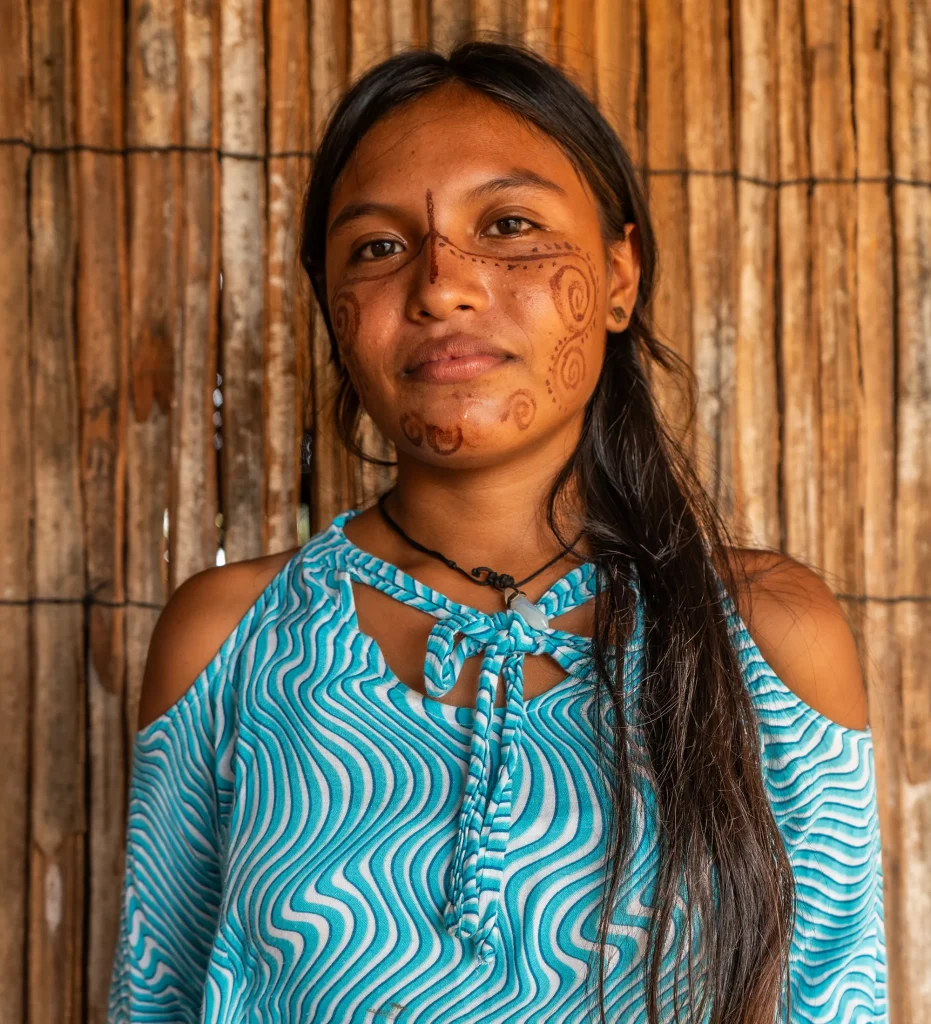


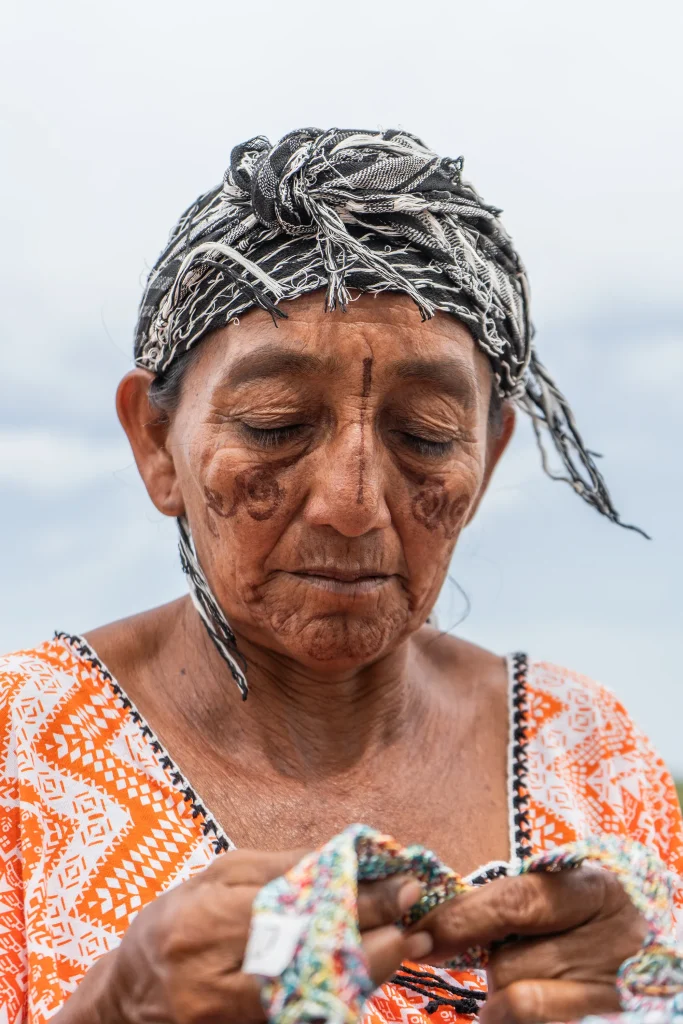

In the future, Olimpia and her team are considering building a subterranean water well to enable the women to have more time to weave. This will also enable them to generate a second financial activity, such as raising sheep and goats, which has traditionally been performed by men. The projects do not end there: their next step will entail extending into the Orokot community, to enable more women to weave memories and hope.






